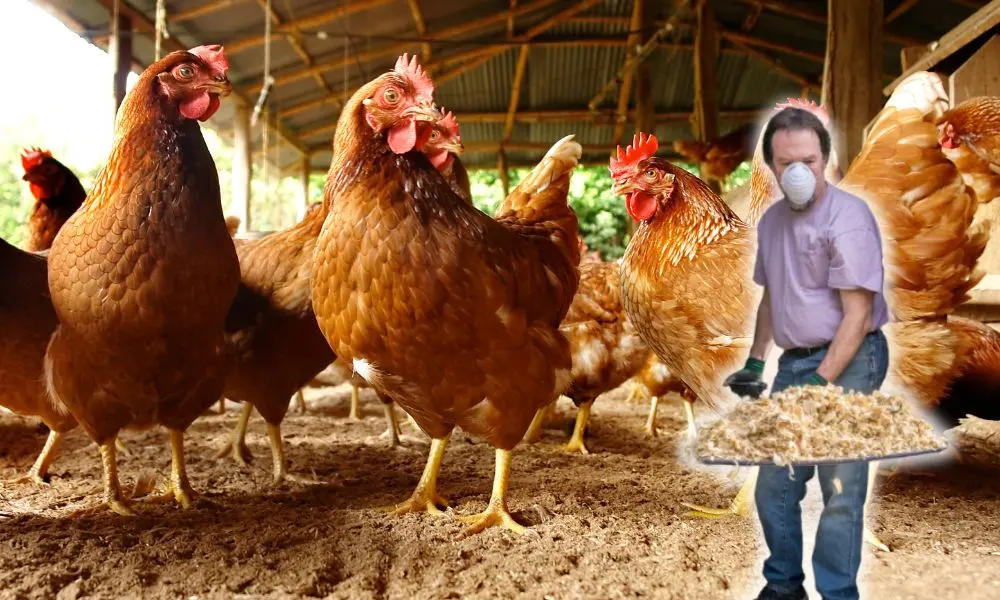Copyright thescarboroughnews

Over the past few weeks there has been a spike in bird flu cases on commercial farmsThe Government in now taking national action to limit the spreadThis strain of bird flu can potentially be transmitted to humans It’s okay to keep eating well-cooked chicken and eggs for now, the Government says, amid bird flu outbreaks on more than 20 commercial farms. The Government is fighting to keep a recent spike in cases of a “highly pathogenic” strain of avian influenza – also known as bird flu – under control. Its Department for Environment, Food and Rural Affairs (Defra) last week announced an England-wide housing order to prevent further outbreaks of the disease, extending earlier preventative measures it had introduced in a few affected regions. This means poultry around the country will have to be kept inside, while farmers will be hard at work implementing strict cleaning protocols. Birds on affected farms are already being culled, with the BBC reporting that there have been 22 confirmed cases across England, from Lancashire to Norfolk. But just how serious is this recent spike – and is there any danger to humans? Here’s what you need to know: How widespread is the latest outbreak – and what is Defra doing to contain it? Avian influenza cases have been detected at a number of commercial poultry farms across the country, according to Defra figures. Most recently, these include a farm in Hallow, Worcestershire on Saturday; two in Norfolk, one in Lincolnshire, and one in North Yorkshire on Friday; and one in Lancashire on Thursday. Cases have also been detected in Wales and Northern Ireland. Defra says that anywhere cases are found, “all poultry on the premises will be humanely culled”. UK chief veterinary officer Christine Middlemiss put in place the mandatory housing order, for the whole of England, which came into effect last Thursday. It means keepers with more than 50 birds – or anyone who sells or gives away eggs – must keep them inside a roofed building, like a barn or shed. There are a few exceptions, including some zoo birds. A Great Britain-wide avian influenza prevention zone is also in place, which requires anyone with pet birds, commercial flocks or even just a few hens in the backyard to carry out some extra biosecurity measures. These include reporting any suspected cases or changes in egg production; disinfecting footwear, clothing and equipment; cleansing housing and concrete walkways regularly; and trying to make their property unattractive to wild birds. Ms Middlemiss said they were taking this “difficult step” because of the continued increase in cases across both wild and kept birds. She continued: “I appreciate the impact these measures have on industry and am extremely grateful for the continued cooperation of the poultry sector. We know from previous years that housing birds will bring the rates of infection down from the high we are currently experiencing.” There are usually at least a few bird flu cases recorded around this time of year. But these had fallen considerably since winter 2022/23, where more than 200 farms were affected. When it spreads widely, the disease can also have a devastating impact on Britain’s vulnerable wild bird populations - with a recent RSPB study describing it as one of the biggest conservation threats facing seabirds. Is bird flu dangerous to humans? The strain of bird flu currently being reported across the UK is known as H5N1, and it is able to be transmitted to mammals, including humans. But Defra says that the current risk to human health remains low. “Properly cooked poultry and poultry products, including eggs, are safe to eat,” it said. The UK Health Security Agency (UKHSA) is also remaining vigilant for any evidence of changing levels of risk, and is carrying out constant reviews. The World Health Organisation (WHO) says that most human cases are linked to people having close contact with infected birds or contaminated environments. This virus doesn’t appear to transmit easily from person-to-person either, its experts added. Some people who contract the disease may have no symptoms at all, it continued, while in a few severe cases, it has proven fatal. The most commonly reported symptoms are respiratory, and the UKHSA also reports flu-like symptoms, such as a fever, cough, body or muscle pain, a sore throat, and a runny nose. Some people may also get conjunctivitis – or sore, red eyes with discharge. The UKHSA has previously published some tips for the general public on staying safe, which largely centre on minimising contact with wild birds – and disposing of any dead ones you find safely. You can find this online here.



